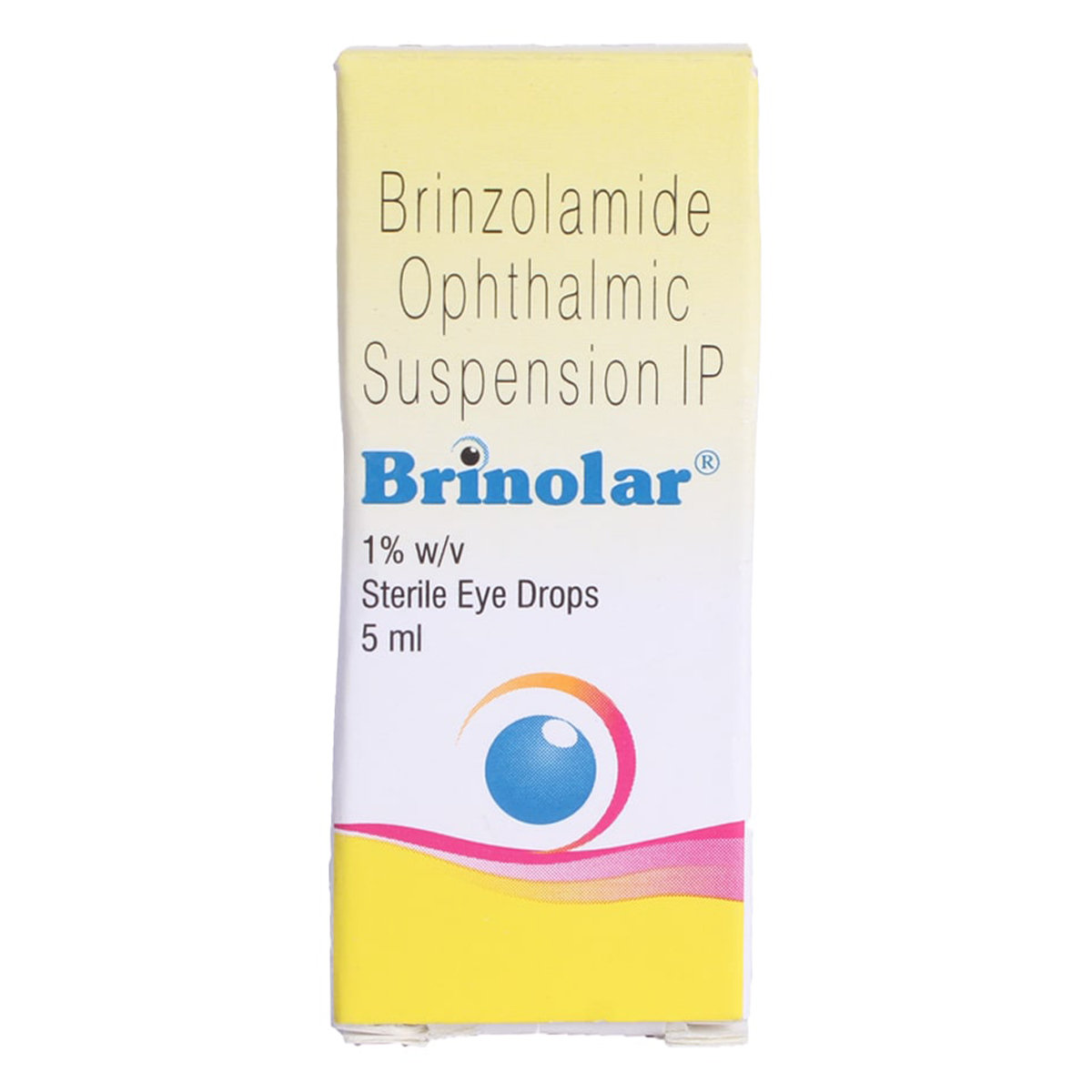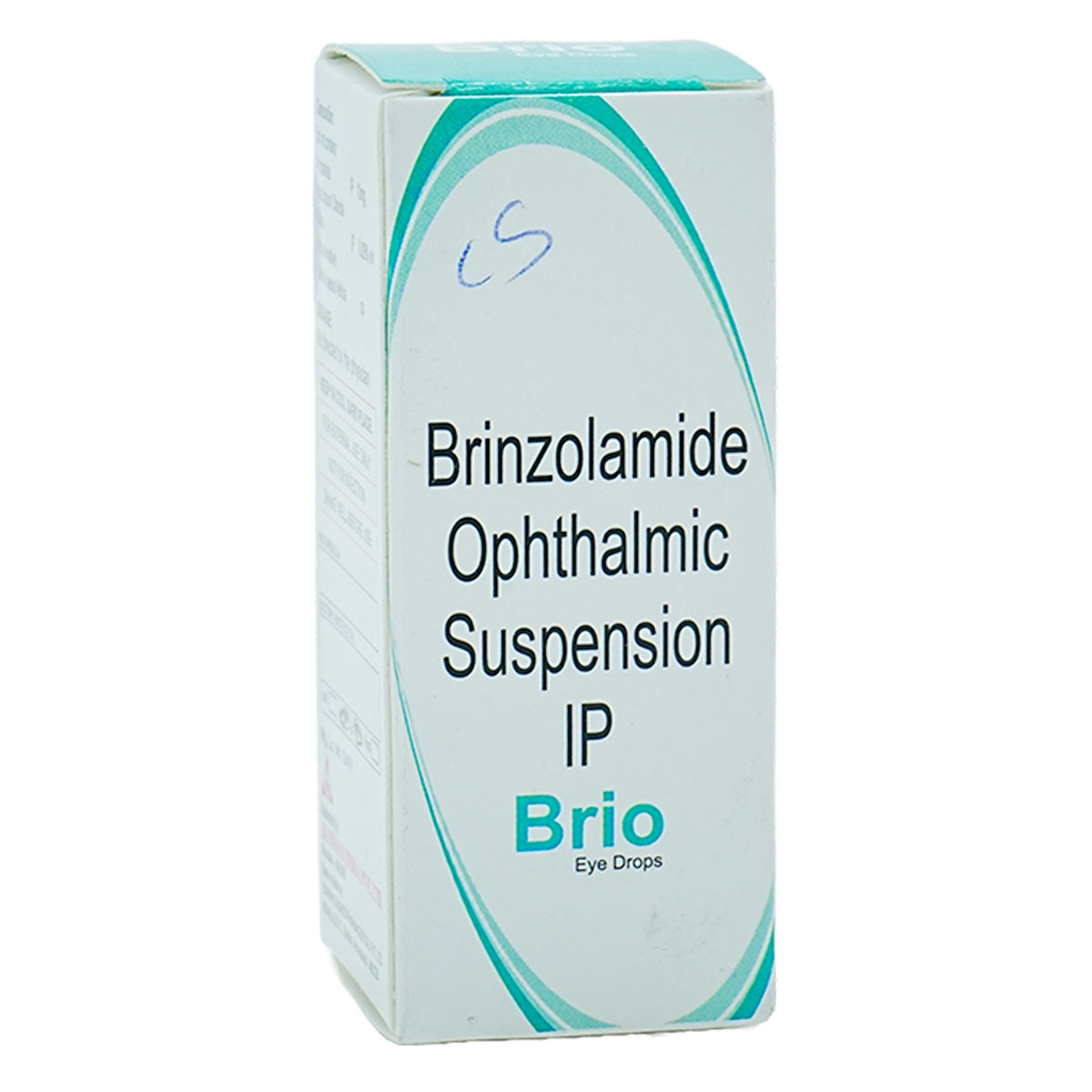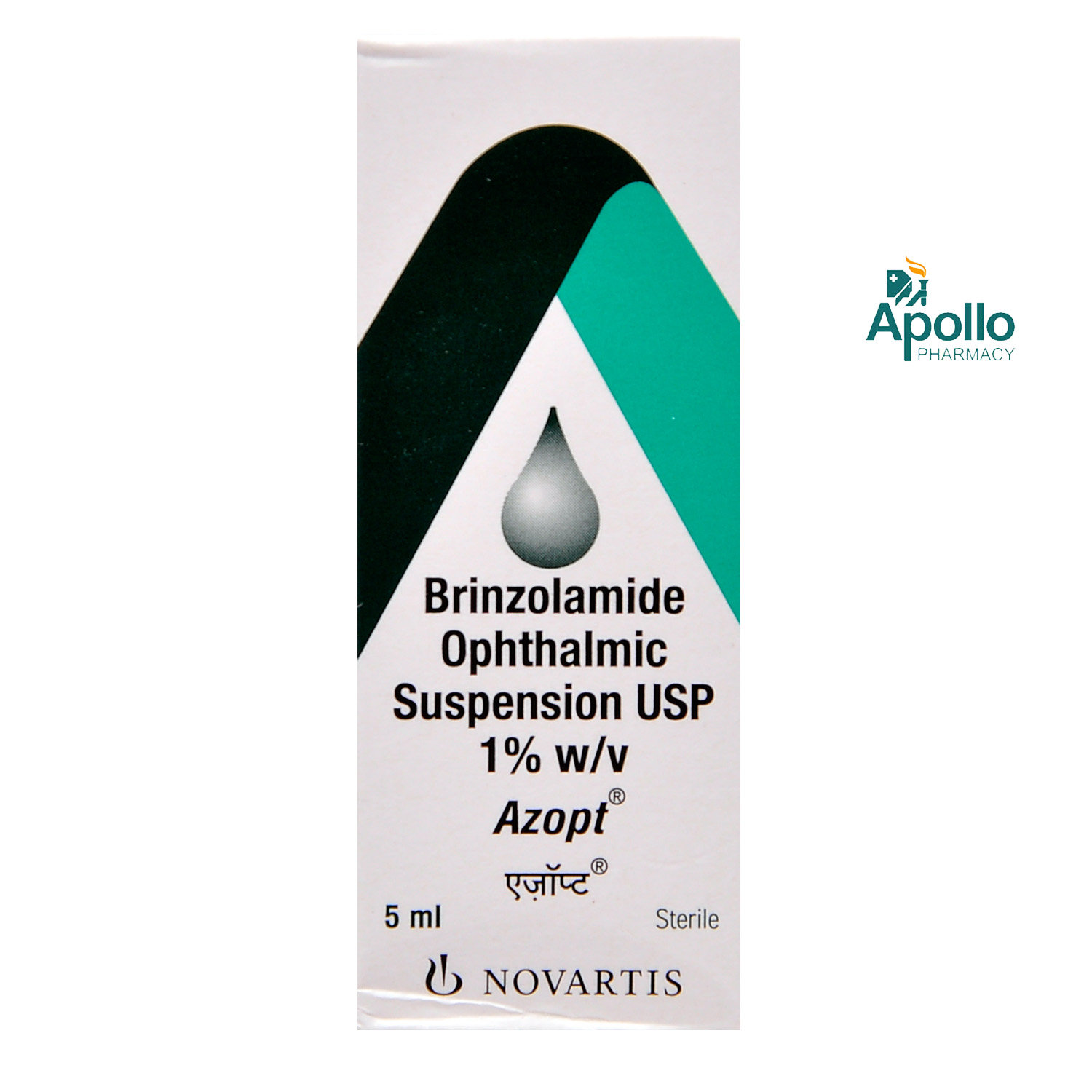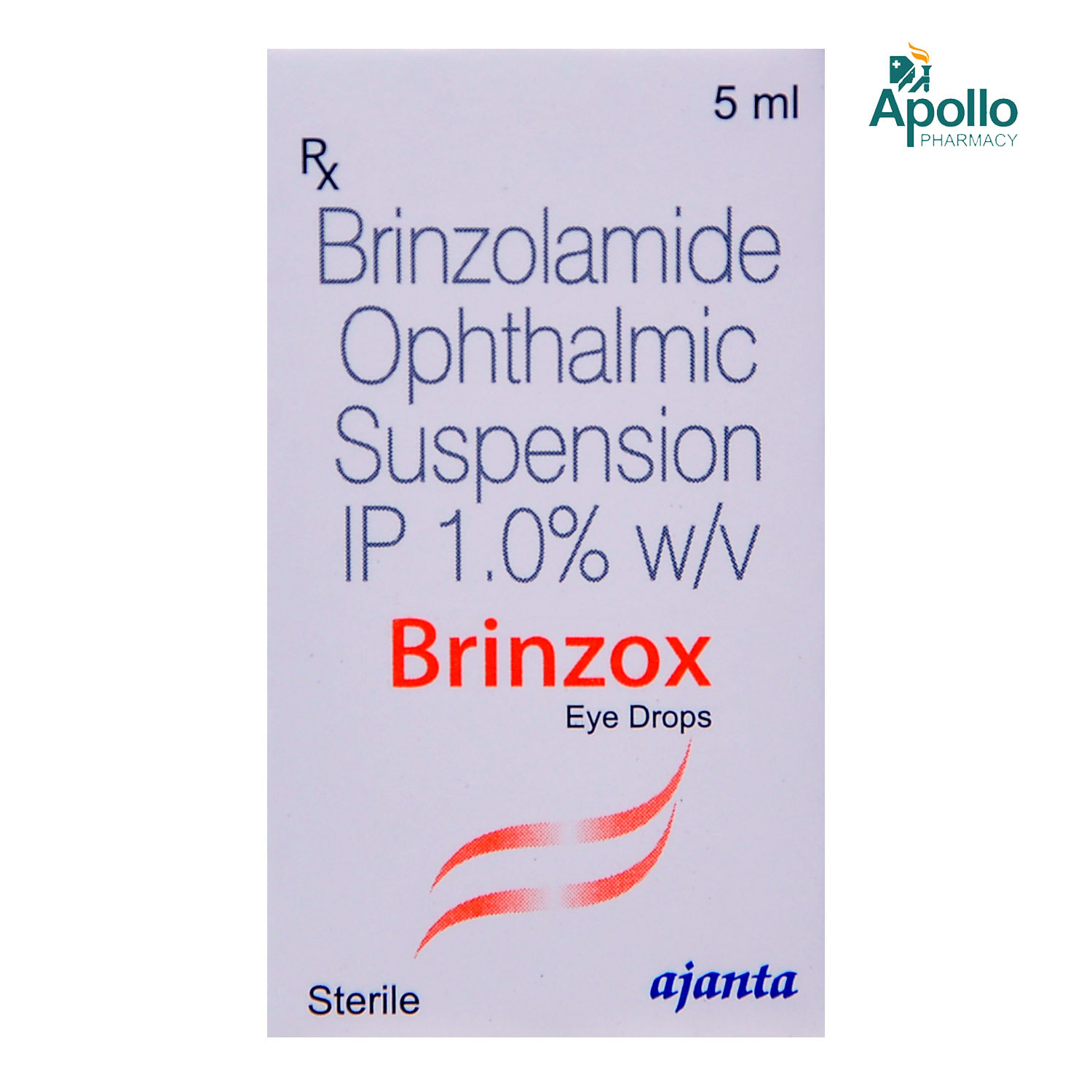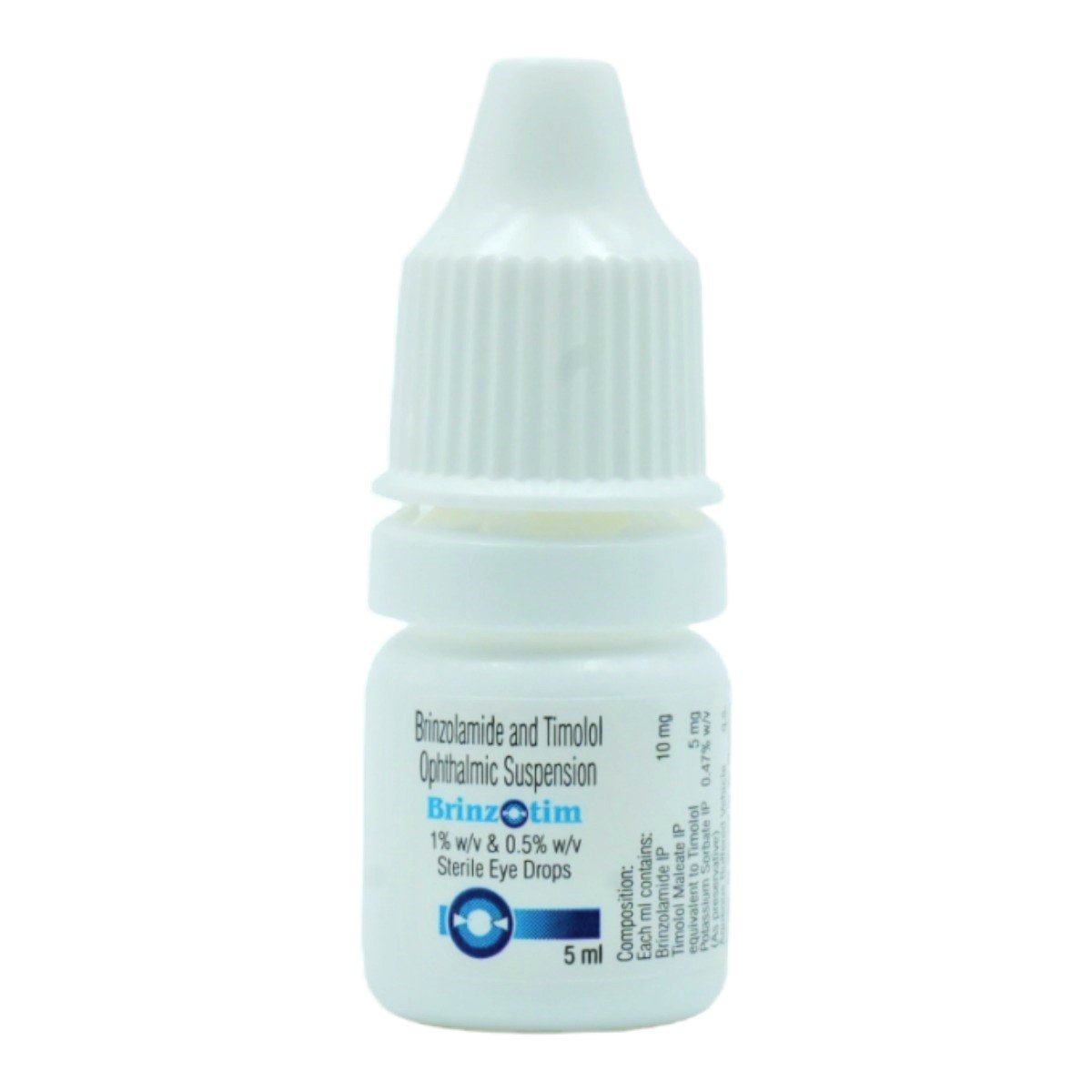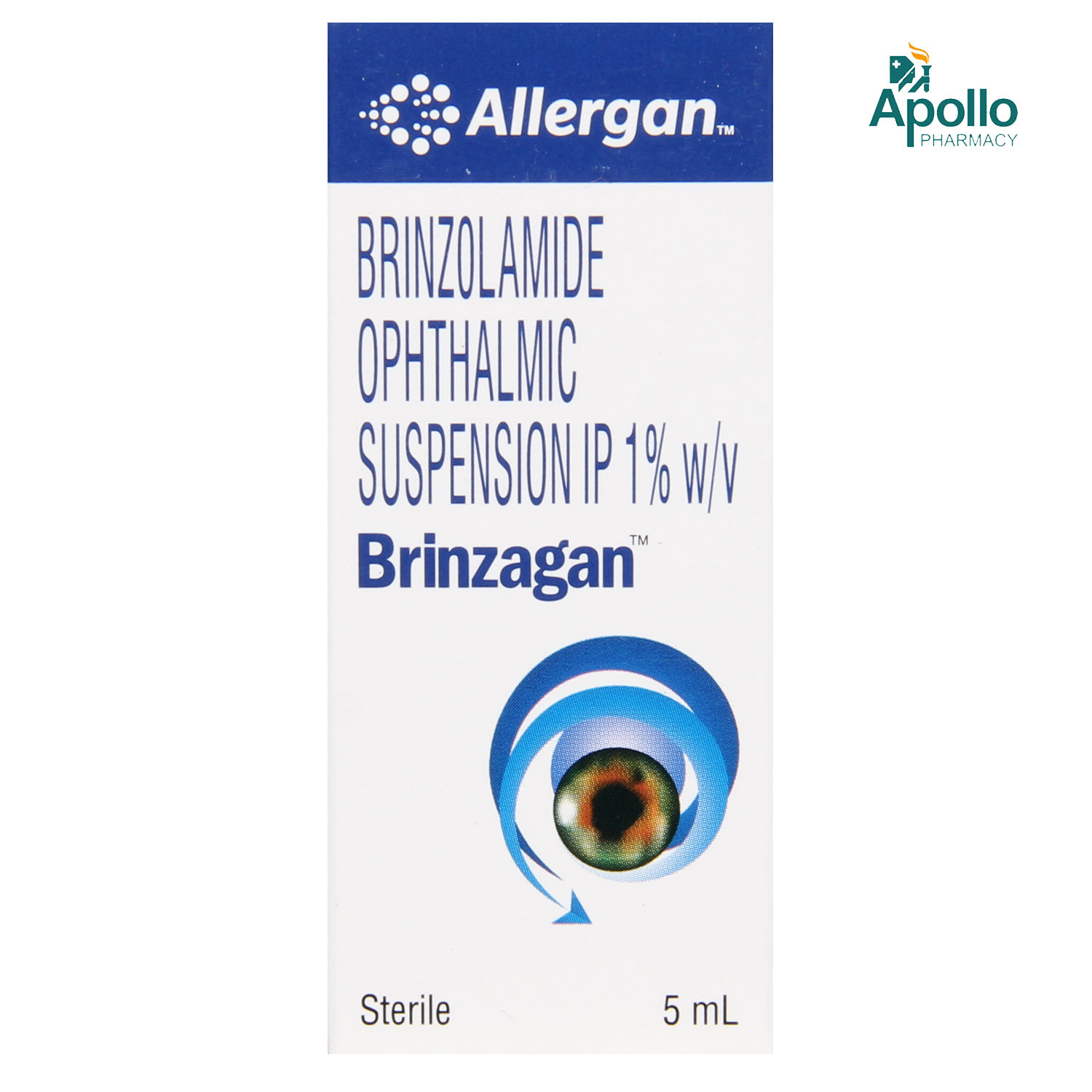Brinzolamide
About Brinzolamide
Brinzolamide is used to treat increased pressure in eye conditions, such as glaucoma and ocular hypertension. Glaucoma causes damage to the optic nerve (essential for good vision) due to abnormally increased pressure in the eye.
Brinzolamide contains Brinzolamide, which works by blocking an enzyme that makes eye fluid. This reduces the amount of fluid (aqueous humour) in the eye, which lowers the pressure inside the eyeball and helps protect vision.
In some cases, you may experience eye discharge, redness, itching, irritation or pain in the eyes, blurred vision, abnormal eye sensation and dry eyes. Most of these side effects do not require medical attention. However, talk to your doctor if you experience these side effects persistently.
If you are allergic to Brinzolamide or any other medicines, please tell your doctor. Brinzolamide is not recommended for children below 18 years of age. You are not advised to use Brinzolamide if you are pregnant, breastfeeding or have severe kidney problems or hyperchloraemic acidosis (excessive acidity in the blood).
Uses of Brinzolamide
Medicinal Benefits
- Brinzolamide contains Brinzolamide, which is used to treat increased pressure in the eye in conditions such as glaucoma (damage of the optic nerve) and ocular hypertension (high fluid pressure inside the eye).
- It reduces the secretion of aqueous humour (a liquid that maintains normal pressure in the eyeball) and lowers the pressure in the eye by reducing aqueous humour entry into the eyeball.
- It helps protect the optic nerve from potential damage.
- It slows the progression of vision loss in glaucoma and related conditions.
- It eases discomfort by lowering the strain linked to raised eye pressure.
Directions for Use
- Follow your doctor's instructions on the dosage and timing of this medication to ensure safety.
- Lie down and tilt your head backwards. Pull your lower eyelid gently with your index finger to form a pocket. Instil the number of drops as advised by the doctor into the pocket of the lower eyelid. Close your eyes for 1-2 minutes.
- Avoid touching the tip of the container to prevent contamination.
Storage
Side Effects of Brinzolamide
- Eye discharge
- Redness, itching, irritation or pain in the eyes
- Blurred vision
- Abnormal eye sensation
- Dry eyes
Drug Warnings
- If you are allergic to Brinzolamide or any other medicines, please tell your doctor.
- Do not use Brinzolamide if you have used any steroid eye injection within six months, undergone any other intraocular surgery (like cataract surgery) within 6 months, or have had any laser surgery within 12 months.
- Brinzolamide is not recommended for children below 18 years of age.
- You are not advised to use Brinzolamide if you are pregnant, breastfeeding, or have severe kidney problems or hyperchloraemic acidosis (excessive acidity in the blood).
- If you get any new eye problem, an eye infection, or notice any allergic reactions such as itching or redness of the eye and skin rash, please consult your doctor immediately.
- If you have dry eyes, cornea problems, narrow-angle glaucoma, pseudoexfoliative glaucoma, pigmentary glaucoma, or kidney or liver problems, before starting Brinzolamide.
- You are advised to maintain a 5-minute time gap between using Brinzolamide and other eye drops.
- Please do not touch the container tip to the eye, eyelids, or surrounding areas, as it may contaminate Brinzolamide and cause eye infections.
Drug Interactions
Drug-Drug Interaction: Brinzolamide may have an interaction with medicines used to treat glaucoma (dorzolamide, acetazolamide).
Drug- Food Interaction: No interactions found.
Drug-Disease Interaction: Inform your doctor if you have dry eyes, cornea problems, narrow-angle glaucoma, pseudoexfoliative glaucoma or pigmentary glaucoma, kidney or liver problems.
Drug-Drug Interactions Checker List:
Safety Advice
Alcohol
consult your doctorThe interaction of alcohol with Brinzolamide is unknown. Please consult a doctor before consuming alcohol with Brinzolamide.
Pregnancy
cautionBrinzolamide is a Category C pregnancy drug and is not recommended for use during pregnancy unless your doctor considers it essential.
Breast Feeding
unsafeAvoid breastfeeding while taking Brinzolamide. Please talk to your doctor before using Brinzolamide in breastfeeding mothers.
Driving
cautionBrinzolamide may cause blurred vision in some people. So, drive only when your vision is clear after taking Brinzolamide.
Liver
cautionBrinzolamide should be used with caution in patients who have liver problems. If you have any concerns about its use, please talk to your doctor.
Kidney
cautionBrinzolamide should be used with caution in patients who have kidney problems. If you have any concerns about its use, please talk to your doctor.
Children
unsafeBrinzolamide is not recommended for children below 18 years of age, as the safety and effectiveness were not established.
Habit Forming
Diet & Lifestyle Advise
- Avoid baked foods such as cakes, cookies, doughnuts, or fried items such as French fries and stick margarine, as these foods may worsen glaucoma and damage the optic nerve.
- Please cut down your coffee intake, as it may increase pressure in the eye and replace coffee with green tea.
- Avoid exercises such as any position where the head is lower than the body, like inverted yoga poses, as it may increase pressure in the eye. Doing selective exercises is advised for glaucoma patients.
Special Advise
- You are recommended to avoid wearing contact lenses while using Brinzolamide, as it may cause discolouration of soft contact lenses.
Patients Concern
Disease/Condition Glossary
Glaucoma: It is an eye condition that causes damage to the optic nerve (essential for good vision) due to abnormally increased pressure in the eye. If it is not treated in time, it may cause blindness. Usually, there are no symptoms of glaucoma initially except for the gradual loss of vision. However, some symptoms include visible rainbow-coloured circles around bright lights or blurred vision. Rarely, glaucoma can develop suddenly with intense pain in the eye, visual disturbance, or nausea.
Ocular hypertension: It is a condition caused by poor drainage of aqueous humour (fluid in the eye that maintains normal pressure by its continuous flow). This leads to the build-up of excess fluid in the eye, resulting in increased pressure inside the eye without any damage to the optic nerve. If ocular hypertension is not controlled, it may lead to glaucoma.
FAQs
Brinzolamide is used to treat glaucoma (open-angle type) and ocular hypertension (high eye pressure).
Brinzolamide contains Brinzolamide that works by inhibiting the action of carbonic anhydrase enzyme and decreases bicarbonate production, which is essential for the production of aqueous humour. Thereby, it reduces the secretion of aqueous humour (a liquid that maintains normal pressure in the eyeball) and lowers the pressure in the eye by reducing aqueous humour entry into the eyeball.
You are recommended to wash your hands first and tilt your head back, and gently pull the lower eyelid downwards. Then, press the bottom of the bottle gently by holding it upside down to instill one drop into the affected eye without touching the tip of the bottle to the eye or surrounding areas in order to avoid contamination. Finally, replace the cap tightly after use. After applying Brinzolamide, you are advised to apply to the corner of the eye by pressing a finger to stop eye drops from spreading into the rest of the body.
No, you are not recommended to wear contact lenses while using Brinzolamide as it may contain a preservative that changes the colour of the contact lens, as it may be absorbed by a soft contact lens. Therefore, you are advised to remove contact lenses before applying Brinzolamide and reinsert after 15 minutes of using Brinzolamide.
You are recommended to maintain a minimum of 5 minutes time gap between using Brinzolamide and other eye drops and administer eye ointments in the last.
Yes, Brinzolamide may cause temporary blurred vision. Therefore, you are recommended to wait until your vision is clear before driving or operating heavy machinery.
You are not recommended to stop using Brinzolamide without consulting your doctor, as it may increase pressure in the eyes and may lead to loss of vision. Therefore, use Brinzolamide for as long as your doctor has prescribed it, and if you experience any difficulty while taking Brinzolamide, please consult your doctor.
Brinzolamide should be used as prescribed by the doctor. The doctor will determine the duration of the treatment based on your condition.
Brinzolamide may cause a headache as a side effect. Rest in a quiet/dark room, massage gently, and use a hot/cold compress on the head and neck.
Brinzolamide may cause side effects like eye discharge, redness, itching, irritation or pain in the eyes, blurred vision, abnormal eye sensation and dry eyes. If the side effects worsen or persist, please consult your doctor.
Avoid using Brinzolamide if you are allergic to any of its components. Inform the doctor if you are pregnant, breastfeeding, have severe kidney problems or have hyperchloremic acidosis (excessive acidity in the blood).

